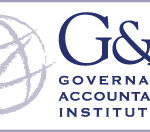(Published on 27 february 2003 in Financial Times).
An unusual phenomenon has emerged in London’s equity markets: the arrival of corporate responsibility analysis among a sell-side community that has traditionally been most resistant to the intrusion of social and environmental issues.
Social responsibility and financial markets may make uneasy bedfellows because of the pressure for financial performance at almost any cost. But socially responsible investing (SRI) has been one of the few fund management growth areas over the past few dismal years in the markets and its adoption by their mainstream clients is forcing equity research houses to take it seriously.
Guy Ashton, head of European equity research at HSBC, says: "The rise of SRI-driven funds means there is a demand for sell-side research."
HSBC was first to enter this market, recruiting Mike Tyrrell 18 months ago from the long-established specialist SRI research team at Jupiter. Dresdner Kleinwort Wasserstein (DrKW) joined in just over a year ago. WestLB Panmure began top-down SRI analysis last spring. Others such as UBS are exploring how they can best tailor existing products to provide this new kind of analysis for clients, particularly the leading SRI fund managers such as Morley and Henderson. UBS, for example, recently produced a special report on the issues concerning obesity.
New research to be published shortly by CSR Europe confirms growing interest among both corporations and fund managers, and a need for better analysis. Companies’ investor relations staff say they expect mainstream investors and analysts to begin integrating social and environmental criteria into their assessments. It may take four to five years, they say, and the quality of social and environmental performance assessment needs to improve; but they believe it will happen.
However, it is the adoption of SRI by leading institutions such as Morley and Henderson that has attracted the attention of the banks that supply them with research. These fund managers have taken the fundamentals of ethical investment – positive and negative social and environmental requirements – and applied them across the board rather than simply running screened funds. So oil companies, typically excluded from screened environmental funds, will come under pressure from SRI investors that own their shares.
The application of SRI to the weight of money managed by such firms has created a market for research. And the number of such investors has steadily grown. In the UK, Isis (formerly Friends Ivory & Sime) and Insight (the new name for the funds management at HBOS) also have an explicit SRI strategy but most big fund managers are being forced to pay attention as their pension fund clients ask for some social and ethical input into investment decisions, stimulated by legal requirements. SRI is also growing rapidly in continental Europe, as well as spreading in Asia.
Mr Tyrrell says he is in touch with 300 fund managers around Europe. Emma Jones, SRI sales specialist with WestLB Panmure, says the firm’s series of conferences in Europe’s financial centres has attracted phenomenal interest: "It’s one area of broking that’s grossly under-served."
Myles Packman, head of SRI at DrKW, says: "All the top 10 fund managers are doing something in this area. And there are lots of smaller teams with SRI responsibility but no research capability in-house."
DrKW produces a daily news service and a series of research notes on specific themes, such as the European Union’s end-of-life vehicles directive and HIV/Aids in South Africa. Mr Packman says he acts as a co-ordinator, using the expertise of the existing research teams to provide material that is useful to SRI fund managers.
That is all very well; but equity analysts have so far shown little interest in SRI. Business in the Environment, the business-led campaign, reported last year that just 3 per cent of analysts believe social and environmental issues are important in their work.
Nobody is claiming that the average analyst is suddenly obsessed by social and environmental issues but there does seem to be growing interest, especially in sectors with the most obvious impact, such as utilities, construction and chemicals. And, at times like these, analysts need any angle they can find to attract clients’ interest.
"Initially they were quite sceptical but they are increasingly buying in to it," Mr Packman says.
Mr Tyrrell is a specialist SRI sell-side analyst (so far the only one) but his main aim is not to produce stand-alone research. He wants to stimulate HSBC’s mainstream analysts to take account of social and environmental issues in the research they produce for clients. "Integration is the only sustainable way forward," he says. "The big question for investors is the link between financial and SR performance, so you have to have the same person doing both. I see my role as creating interest on the research floor, asking questions, bouncing ideas backwards and forwards, saying: ‘Here’s something happening – how does it affect companies in your sector?’ "
Mr Tyrrell stresses that HSBC is offering a service to corporate as well as institutional clients. He has organised breakfast briefings at which companies present to fund managers on social and environmental performance, just as they would make a conventional presentation on their annual results.
This blurring of the edges is important. "The key thing is not to draw too wide a distinction between what is an SRI issue and what is a financial issue," he says. "There are grey areas such as EU directives, black empowerment in South Africa and pharmaceuticals prices. This uncharted territory is where the interesting ideas will come from."
It is interesting ideas that will attract business – without which this experiment would soon disappear.
Clare Brook, director of SRI at Morley Fund Managers, says the research community has much to offer, even to fund managers such as her who have their own in-house resources.
The clout of fund managers such as Morley has driven the emergence of sell-side SRI. But it will not become fully integrated in equity analysis unless mainstream fund managers pay more attention. That may come. Ms Jones of WestLB Panmure says: "We see it as an evolutionary process. The regulatory changes around pension funds mean people have to take it more and more seriously. Clients are recognising that it is an area they can’t afford to ignore."
By ROGER COWE.



